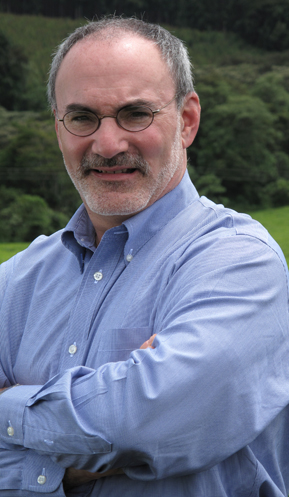BU’s Global Health Outreach Buttressed
$8.5 million grant to support neonatal studies and care in Zambia

BU’s Center for Global Health and Development, operating under the umbrella of the School of Public Health, has received $8.5 million from the Bill & Melinda Gates Foundation for a four-year, large-scale trial in the African nation of Zambia. The center hopes to prove that a simple, inexpensive change in the way newborns are handled can dramatically decrease neonatal mortality.
“I’m so pleased to be able to announce this grant,” says Jonathon Simon, the center’s founding director. “For all of the progress that’s been made worldwide in reducing deaths in children, there’s been much less progress for ‘neonates,’ meaning the first 28 days of life. We’re hoping to change that.”
Simon’s group, which already has a strong presence in Zambia, is setting out to prove that using an antiseptic wash called chlorhexidine to clean the umbilicus stump of newborns (the small piece of umbilical cord that remains for about a week after the cord is cut at birth) will improve baby survival rates. In the southern province of Zambia where the study will be conducted, traditional ways of handling the umbilicus include leaving it exposed, packing it with mustard oil, or even encasing it in cow dung.
More than 28,000 Zambian women will be recruited for the study. Half of them will use the topical antiseptic daily, and half will care for their newborns in the usual ways. Simon hopes that comparing outcomes will create a powerful argument for health-care providers around the world to change the way newborns are handled.
President Robert A. Brown expressed his thanks and praised Simon’s efforts. “We are grateful for the support of this marvelous project led by Professor Simon,” says Brown. “This study is indicative of the quality and impact of the research and outreach that is under way in the Center for Global Health and Development.”
The grant fits the BU center’s ongoing strategy.
“We’re interested in the cheapest technology available to poor communities that saves lives,” says Simon. “The question becomes, how simple, cheap, effective, and accessible can we make it?”
Chlorhexidine fits the bill. It’s “dirt cheap,” he says, available at pennies a dose. “We’re actually worried that the packaging is more expensive than the product.”
While the experiment seems straightforward, its protocol is not. Birth attendants and expectant mothers have to be recruited and educated. The topical antiseptic has to be applied properly for 7 to 10 days, or until the umbilicus falls off. If the antiseptic is delivered in a single vial, it must be doled out carefully, not overapplied or spilled. If it is offered in single packets to allow researchers better proof that it is being applied daily, expense rises dramatically. Cell phones, which have recently arrived in Zambia, will be used to keep in touch with families during this crucial first week of life, another technological complication.
While Simon and his team work out the details that will reduce the study’s variables, one big-picture question emerges: isn’t it clear that an antiseptic wash is a better way to cleanse a baby than cow dung? Why go through an expensive study to prove the obvious?
“Of course we believe the antiseptic is a better way,” says Simon. “If the science doesn’t show that, I’ll eat my hat. But even the strongest hypothesis or assumption needs to be proven with bulletproof evidence.” And hard, specific, indisputable data turn a study like this into a powerful argument that can be delivered anywhere, a case study that puts to rest concerns of Western cultural bias or allegations that traditional methods are not being respected or understood.
In some ways, says Simon, his study is really a delivery trial, one that will get new treatment into the field. “This will be a proof of principle,” he says. “Then comes the hard work: getting this into regular practice around the world.”
Simon’s team will open headquarters in Choma, a small town central to the “catchment area,” the region of study. “We’ll also begin procuring supplies and finalizing a training module for hundreds of nurses,” he says. Newborns could be enrolled in the large-scale effort within six months.
To read more about the grant in the Boston Globe, click here, and in the Boston Business Journal, click here.
Seth Rolbein can be reached at srolbein@bu.edu.
Comments & Discussion
Boston University moderates comments to facilitate an informed, substantive, civil conversation. Abusive, profane, self-promotional, misleading, incoherent or off-topic comments will be rejected. Moderators are staffed during regular business hours (EST) and can only accept comments written in English. Statistics or facts must include a citation or a link to the citation.